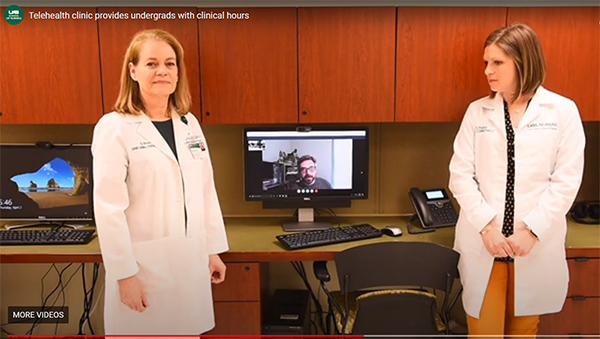By Grace Thornton
The Alabama Baptist
During COVID-19, as Alabamians have taken the idea of “drive-through” and “drive-in” to new lengths, Deborah Bowers has just been carrying on with something she’s been doing for a long time.
Drive-up medical clinics.
For years, Bowers — a faculty member at the University of Alabama at Birmingham School of Nursing — has taken pop-up medical care to Africa, South America and other parts of the world, unloading tables and supplies from her car and providing care for hundreds of people in need. It’s a concept she’d worked on as her D.Min. project at Southeastern Baptist Theological Seminary.
And a little over a year ago, The Foundry Ministries reached out to her and asked if she’d adapt that idea to Alabama to bring much-needed care to Birmingham’s homeless population and others in need in the area.
She said yes, and the Changed Lives Mobile Clinic was born.
The clinic takes medical services to the residents at the Foundry as well as the Changed Lives Christian Center, a homeless ministry and transitional home run by the Foundry.
The clinic provides free care for those who need it, as well as an opportunity for more than 40 nurses and nursing students to gain experience in community health.
It’s “exciting” and “a win-win,” said John Roland, chief development officer for The Foundry Ministries. “It allows people in our programs to get medical care much more conveniently and for free, and it creates partnerships and opportunities for donors to get involved in something good for the community.”
Not only that, it provides opportunities for them to partner with churches who might want to learn the model for their own medical missions trips, said Roland, who also serves as interim pastor of Robinwood Baptist Church, Birmingham.
“We’d love to be a training ground for churches who want to go overseas and see how we do it and model that,” he said.
Last year 280 individual patients received care at no cost.
And it all starts with providing access to the gospel, Roland said.
“We are Christ-centered … no apologies,” Roland said. Sharing the gospel is “what we do.”
Care during COVID-19
Though coronavirus threw a wrench in the mobile clinic’s system, they were able to keep things going without a hitch, thanks to the UAB School of Nursing opening up their TeleCare Unit.
Three nurses at The Foundry — wearing full protective gear — guide patients through virtual appointments with other UAB medical staff on provided devices.
They’re able to help them take their own vitals with supervision, schedule any additional needed tests and help keep their prescriptions up-to-date.
They’ve also taken other safety measures, such as scheduling patients in 20-minute time slots to promote social distancing.
“Many of the patients we saw in our first virtual clinic had ongoing health issues that left untreated could potentially be life threatening,” said Bowers, according to UAB School of Nursing News. “Many of the men in the program have chronic diseases, high blood pressure or diabetes, and many more have mental health issues that are now compounded by the uncertainty surrounding COVID-19. Maintaining this clinic in the way we have hopefully helps keep CLCC and The Foundry Farm residents in their treatment program and keeps them from going to a local emergency room for primary care.”
Read more about The Foundry Ministries at tabonline.org/the-foundry.






Share with others: